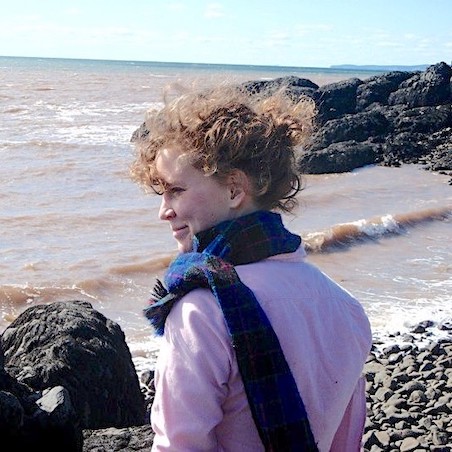Moira Donovan
Independent Journalist
Bachelor of Arts (Hons), 2010
I always approach ideas by looking at their historical context: Where does our current treatment of a species, or way of thinking about a problem, come from?
When Moira Donovan was a teenager, her sister told her she’d make a great journalist. Her casual reply was always “sure, that might work.”
Might work indeed. Today Moira is a highly respected independent journalist specializing in the environment. Her written work has been published in The Walrus, The Christian Science Monitor, and The National Observer and her documentary work has been featured on CBC’s Ideas, Quirks & Quarks and Atlantic Voice. Topics range from the history of rats, to the threat of sea-level rise, to concerns about liquid natural gas projects.
Her interest in the environment started young. “I grew up spending a lot of time outside with my siblings and family,” says Moira. “And I volunteered at a group for the protection of animals. Like a lot of children, I cared deeply for animals.”
That caring has grown into a passion. “It’s become clear to me that the greatest challenges we have these days are directly related to our treatment of the environment.” As a journalist, she says her role is “to say that we need to do things differently.”
Moira looks for the historic and philosophical starting points of issues. She also tries to incorporate more traditional ecological knowledge that comes from Indigenous communities.
“There’s an influential concept that comes from the Mi’kmaq called two-eyed seeing (etuaptmumk). It’s driving a lot of change. It’s been missing from the way western science approaches the natural world.”
She credits King’s as the starting point for developing her approach.
“I did not go to King’s for journalism,” says Moira. “I went not knowing what I wanted to do.”
What she did know was that she wanted to study something that was completely new to her, in a completely new way. “I hadn’t studied much philosophy,” she continues, “and didn’t know what I was getting into. Right from the start I knew I made the right choice.”
She describes the Foundation Year Program (FYP) as “unrivalled” in terms of a positive and expansive university experience. “I still remember the pleasure of sitting around every day talking about ideas … That was a stark shift for me—school went from something you study because you have to, to something that changed the way you look at the world.”
She admits that open-endedness can be a challenge for people who may be goal-oriented. “Young people are coming into a world with a lot of uncertainty and have anxiety about that. For some, a way of managing is to take a program that is a clear route to a professional career. But I think people are well served by having a grounding in the knowledge systems and conceptual frameworks that structure the world we live in … it may be a cliché to say it, but employers want those qualities. They want people who can look at the big picture … and translate that so other people understand.”
That grounding certainly served Moira well. After graduating from King’s with First Class Honours and the University Medal in Early Modern Studies, she went on to study at the London School of Economics, earning her master’s degree in philosophy and public policy (2013). From there, she built a career in journalism that allows her to continue developing her expertise and explore topics that have been misunderstood or under-covered.
Moira’s exceptional approach to her work has earned her awards, accolades, and a prestigious list of publications. But she says her career highlight is much more intangible: trust.
“I (recently) produced a documentary in collaboration with Tracy Marshall, a science student from Potlotek First Nation, about two-eyed seeing. It was really rewarding because we were substantiating the concept of the work, in the work. As much as I am dedicated to serving the public interest in my work, it’s also important to cultivate a relationship of trust and integrity and working with Tracy, it felt like we achieved that … I’ve had big moments, but those little moments give me the sense of being on the right track.”
